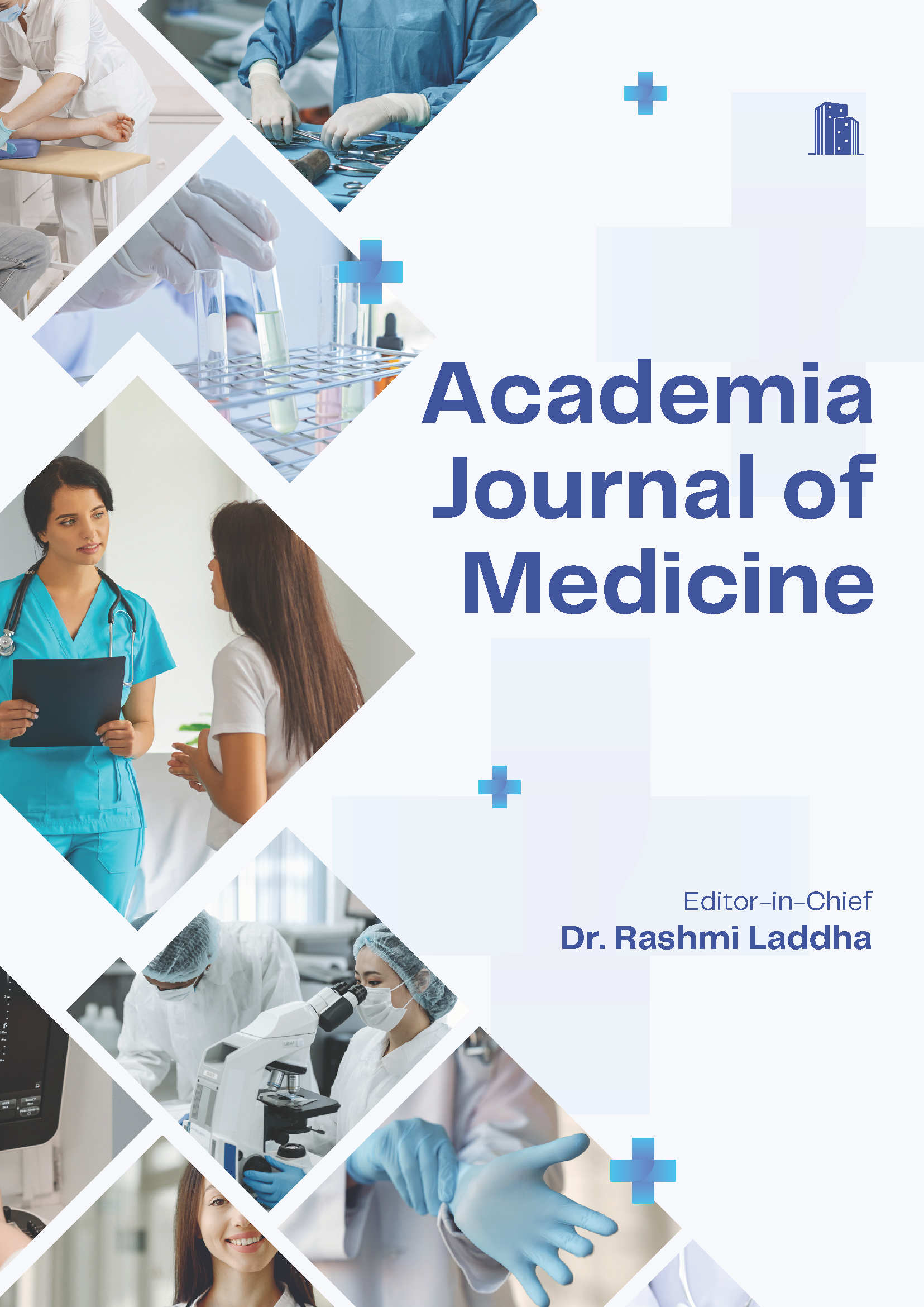Efficacy of Gensini Score in Assessing the Severity of Coronary Artery Disease
DOI:
https://doi.org/10.48165/xgf46540Keywords:
Coronary artery disease, Gensini score, Vitamin DAbstract
Background: The present study was conducted to assess the efficacy of the Gensini score in the severity of CAD. Subjects & Methods: 100 hospitalized patients presenting as myocardial infarction (MI) (STEMI and NSTEMI), CAD without MI (CSA and UA) were recruited for the study. Plasma 25-OH Vit D level was measured by using the electrochemiluminesent immunoassay (ECLIA) method. Gensini score was recorded which was based on the percentage of luminal narrowing (25%: 1 point; 50%: 2 points; 75%: 4 points; 90%: 8 points; 99%: 16 points, and total occlusion: 32 points). Results: Severe vitamin D deficiency < 20ng/ml is seen in a total of 17 patients, out of which 9 patients were having SVD, 8 patients were having DVD, none of the patients having TVD and Normal Coronaries. Gensini score is calculated in all patients undergoing CAG. Mean Gensini score for DVD 34.75, for SVD 16. The mean vitamin D levels are correlated with the severity of coronary disease using the Gensini score. There is a trend towards increasing severity of coronary artery disease with decreasing levels of vitamin D levels with an odd ratio of 2.233. Conclusion: Authors found that Gensini score is useful in assessing severity of Coronary artery disease.
References
1. Steinvil A, Sadeh B, Arbel Y, Justo D, Belei A, Borenstein N, et al. Prevalence and Predictors of Concomitant Carotid and Coronary Artery Atherosclerotic Disease. J Am Coll. 2011;57(7):779–783. Available from: https://dx.doi.org/10. 1016/j.jacc.2010.09.047.
2. Tanimoto S, Ikari Y, Tanabe K. Prevalence of carotid artery stenosis in patients with coronary artery disease in the Japanese population. Stroke. 2005;36(10):2094–2102. Available from: https://doi.org/10.1161/01.STR.0000185337.82019.9e.
3. Sinning C, Lillpopp L, Appelbaum S, Ojeda F, Zeller T, Schnabel R. Angiographic score assessment improves cardiovascular risk prediction: the clinical value of SYNTAX and Gensini application. Clin Res Cardiol. 2013;102(7):495– 503. Available from: https://dx.doi.org/10.1007/s00392-013- 0555-4.
4. M, Acciarresi CV, Baumgartner M, Agnelli RW, G. Man agement of asymptomatic carotid stenosis in patients undergo ing general and vascular surgical procedures. J Neurol Neu rosurg Psychiatry. 2005;76(10):1332–1338. Available from: https://dx.doi.org/10.1136/jnnp.2005.066936.
5. Drohomirecka A, Kołtowski L, Kwinecki P, Wronecki K, Cichoń R. Risk factors for carotid artery disease in patients scheduled for coronary artery bypass grafting. Kardiol Pol. 2010;68(7):789–794.
6. Kolh PH, Comte L, Tchana-Sato V, Honore C, Kerzmann A, Mauer M, et al. Concurrent coronary and carotid artery surgery: factors influencing perioperative outcome and long term results†. Eur Heart J. 2006;27(1):49–56. Available from: https://dx.doi.org/10.1093/eurheartj/ehi494.
7. Wanamaker KM, Moraca RJ, Nitzberg D, Magovern GJ. Contemporary incidence and risk factors for carotid artery disease in patients referred for coronary artery bypass surgery. J Cardiothorac Surg. 2012;7(1):78–78. Available from: https: //dx.doi.org/10.1186/1749-8090-7-78.
8. Ponda MP, Huang X, Odeh MA, Breslow JL, Kaufman HW. Vitamin D may not improve lipid levels: a serial clinical laboratory data study. Circulation. 2012;126(3):270– 277. Available from: https://doi.org/10.1161/circulationaha. 111.077875.
9. Wang TJ, Pencina MJ, Booth SL, Jacques PF, Ingelsson E, Lanier K, et al. Vitamin D Deficiency and Risk of
Cardiovascular Disease. Circulation. 2008;117(4):503–511. Available from: https://dx.doi.org/10.1161/circulationaha.107. 706127.
10. Kayaniyil S, Vieth R, Retnakaran R, Knight JA, Qi Y, Gerstein HC, et al. Association of Vitamin D With Insulin Resistance and -Cell Dysfunction in Subjects at Risk for Type 2 Diabetes. Diabetes Care. 2010;33(6):1379–1381. Available from: https: //dx.doi.org/10.2337/dc09-2321.
11. Avci A, Fidan S, Tabakçı MM, Toprak C, Alizade E, Acar E, et al.. Association between the Gensini Score and Carotid Artery Stenosis; 2016. Available from: https://dx.doi.org/10. 4070/kcj.2016.46.5.639.
12. Kendrick J, Targher G, Smits G, Chonchol M. 25- Hydroxyvitamin D deficiency is independently associ ated with cardiovascular disease in the Third National Health and Nutrition Examination Survey. Atheroscle rosis. 2009;205(1):255–260. Available from: https:
//dx.doi.org/10.1016/j.atherosclerosis.2008.10.033.

